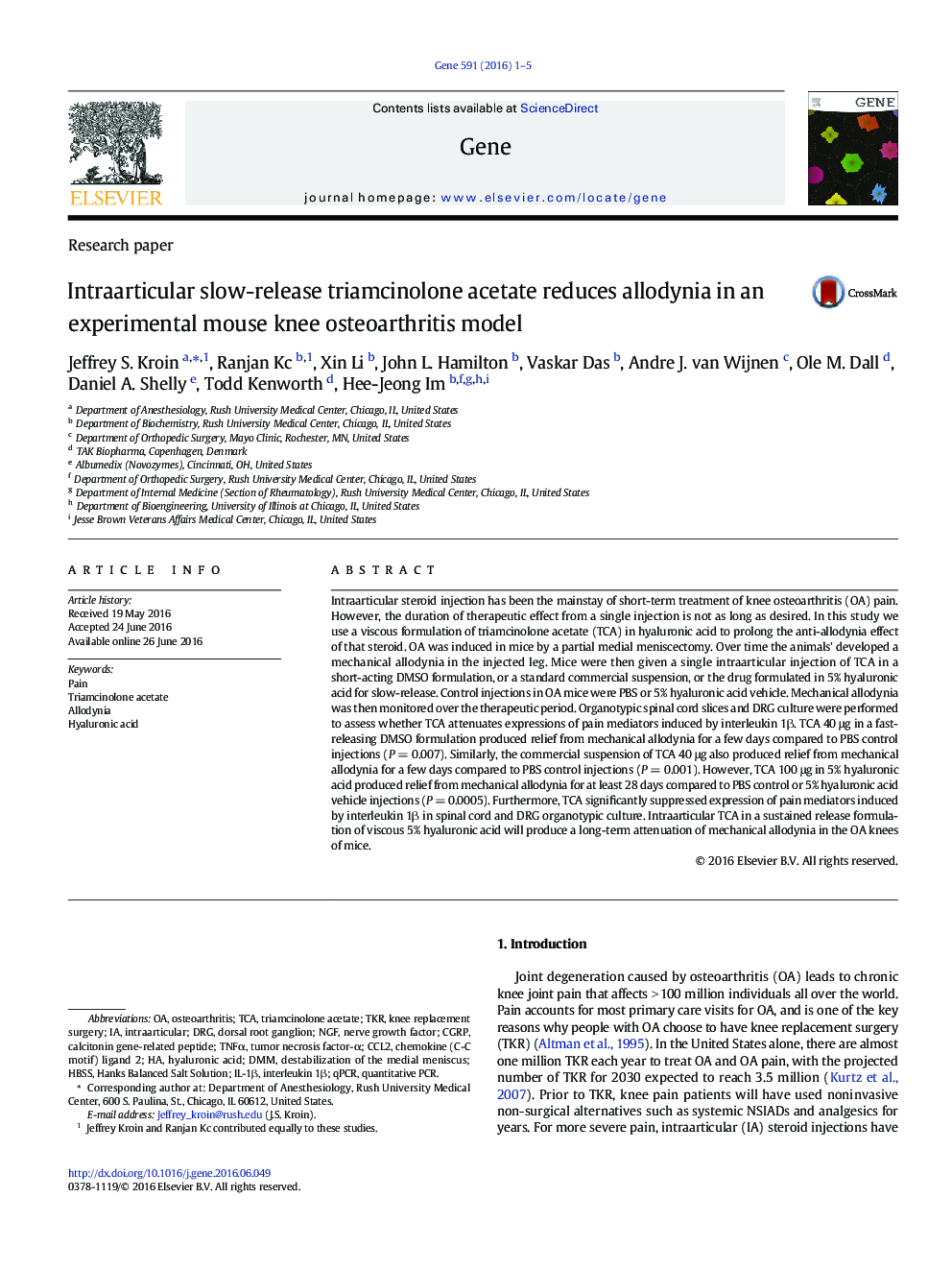| کد مقاله | کد نشریه | سال انتشار | مقاله انگلیسی | نسخه تمام متن |
|---|---|---|---|---|
| 2814807 | 1159831 | 2016 | 5 صفحه PDF | دانلود رایگان |
• TCA reduces mechanical allodynia in mice with chronic surgically-induced OA.
• TCA in a 5% HA matrix produces a prolonged anti-allodynia effect in mice with chronic surgically-induced OA.
• TCA suppresses expression of pain mediators induced by IL-1β in spinal cord slices and DRG organotypic culture.
Intraarticular steroid injection has been the mainstay of short-term treatment of knee osteoarthritis (OA) pain. However, the duration of therapeutic effect from a single injection is not as long as desired. In this study we use a viscous formulation of triamcinolone acetate (TCA) in hyaluronic acid to prolong the anti-allodynia effect of that steroid. OA was induced in mice by a partial medial meniscectomy. Over time the animals' developed a mechanical allodynia in the injected leg. Mice were then given a single intraarticular injection of TCA in a short-acting DMSO formulation, or a standard commercial suspension, or the drug formulated in 5% hyaluronic acid for slow-release. Control injections in OA mice were PBS or 5% hyaluronic acid vehicle. Mechanical allodynia was then monitored over the therapeutic period. Organotypic spinal cord slices and DRG culture were performed to assess whether TCA attenuates expressions of pain mediators induced by interleukin 1β. TCA 40 μg in a fast-releasing DMSO formulation produced relief from mechanical allodynia for a few days compared to PBS control injections (P = 0.007). Similarly, the commercial suspension of TCA 40 μg also produced relief from mechanical allodynia for a few days compared to PBS control injections (P = 0.001). However, TCA 100 μg in 5% hyaluronic acid produced relief from mechanical allodynia for at least 28 days compared to PBS control or 5% hyaluronic acid vehicle injections (P = 0.0005). Furthermore, TCA significantly suppressed expression of pain mediators induced by interleukin 1β in spinal cord and DRG organotypic culture. Intraarticular TCA in a sustained release formulation of viscous 5% hyaluronic acid will produce a long-term attenuation of mechanical allodynia in the OA knees of mice.
Journal: Gene - Volume 591, Issue 1, 10 October 2016, Pages 1–5
